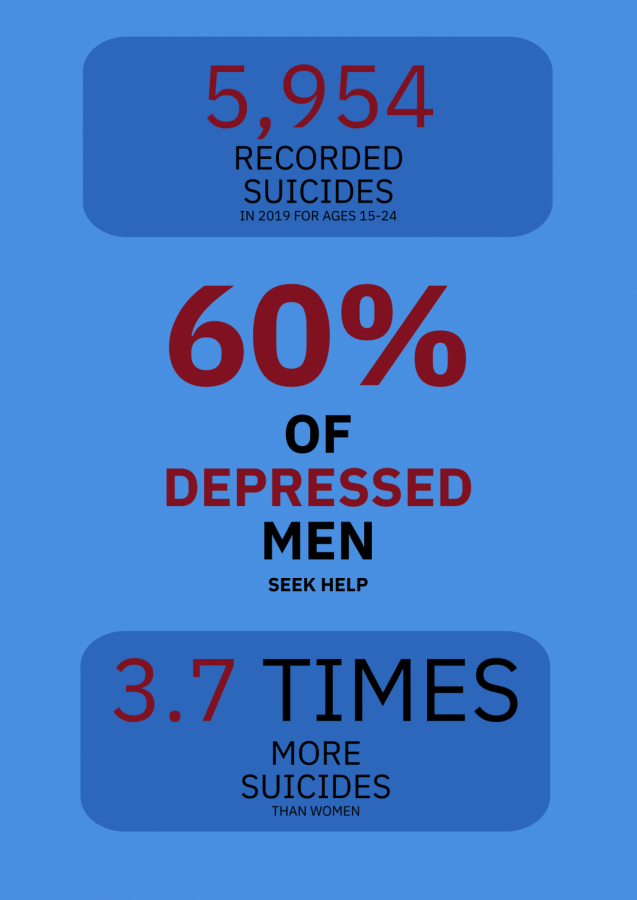Suffering in Silence – Men’s Mental Health Mistreatment
Bringing light to the silent suffering of many men.
Here’s some statistics for men’s mental health.
We have all been taught about depression in health class, but you might not have known that many of your classmates are likely struggling with it. Depression is a detrimental mental illness that, if not treated, is very destructive. The numbers of suicides and depression sadly prove this to be true, with men being the majority.
There is an issue with men’s mental health in America. There has been a stigma surrounding men’s emotions for decades. “Be a man” is a very common saying, and the sentiment behind it can be helpful to an extent. “Manning up” can help you push through hard situations and put you on top. It can help with mental fortitude for many things, but it is not helpful when it leads to suffering and suicide.
In an article by mayoclinic.org, they state that male depression often goes undiagnosed due to either a failure to recognize depression, downplaying signs or symptoms, reluctance to discuss depression symptoms, and resisting mental health treatment. Undiagnosed depression is dangerous, it’s very hard to open up and seek help because it is deemed as weak. I will be the first to tell you that if you are battling with depression, the strongest thing to do is seek help and get better.
Unfortunately, in 2019, suicide was the 10th leading cause of death in America. It was the 2nd leading cause in 15-24 year olds, with 5,954 recorded suicides. For men overall, we make up 3.7 times more suicides than women. Many believe this stems from the small percentage of men actually seeking help.
According to an article released in 2017 by gatewaycounseling.com, 60% of depressed men will seek help and a whopping 5% will take advantage of outpatient mental health services. This article also states that men are less likely to participate in the use of prescription medication– only 9% of men that seek help will use prescription medication to improve their mental health. There are not enough men in recovery or seeking help to battle their mental health together. That 9% is sad to see, because more should know and want to seek having a healthy mind.
Many men believe their success depends on their independence and perceived strength, which leads to too many men not reaching out for help. Reaching out for help does not make you a failure. We as humans are designed to be social creatures, so it does not make sense to go through this battle alone. Men’s mental health is flying under the radar, and there needs to be easier outreach programs for men that are suffering.
If this is you, seek help and overcome this. It’s okay that you cannot do it yourself. We will get through it together.




